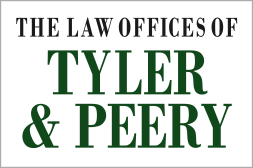Losing a loved one under any circumstance is tough. The pain becomes unbearable when you learn that your loved one’s untimely demise was caused by another person’s reckless or unlawful actions. Besides the feelings of sorrow, you will also have to grapple with the loneliness that comes with losing your kin.
While no amount of compensation can bring back a loved one, Texas’ negligence laws allow you to hold the liable party accountable and get some sense of justice and closure on the matter. This is where a wrongful death claim comes in.
But first, when is death deemed wrongful?
Death is inevitable. However, according to Texas statute, death is deemed wrongful if it is caused by another party’s actions. These actions can be out of negligence, recklessness or unskillfulness. Some of the incidents that can lead to wrongful death include car accidents, slips and falls, construction accidents, and some criminal acts.
If your loved one’s death is wrongful, you can pursue the responsible party for the resulting economic and non-economic damages such as funeral and burial expenses, medical expenses if the victim spent time in hospital before succumbing, loss of income and loss of companionship among other damages. That said, Texas laws specify who can sue for wrongful death.
So can you sue for wrongful death in The Lonestar State?
Under Texas law, the following people can sue for wrongful death claims: the victim’s spouse, children (including adopted children), parents and estate representative.
However, you cannot file a wrongful death claim when you feel like it. In Texas, you have up to two years from your loved one’s death to sue for wrongful death. With a few exceptions, you risk forfeiting the damages you are entitled to if you let the statute of limitations period run out.
Not many things are as tough as dealing with a loved one’s preventable death. Find out how you can pursue justice if you lose a loved one following someone else’s wrongful actions.
